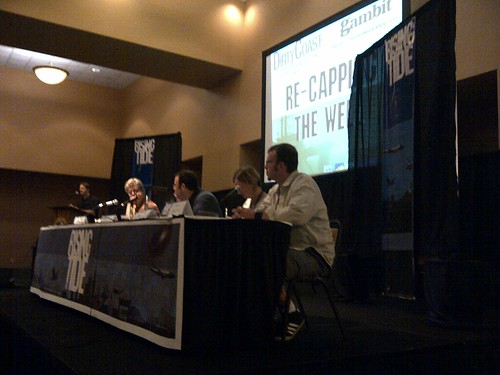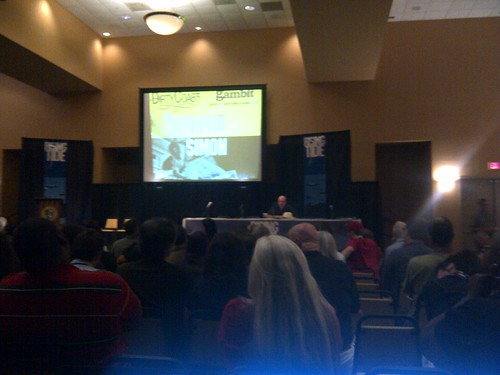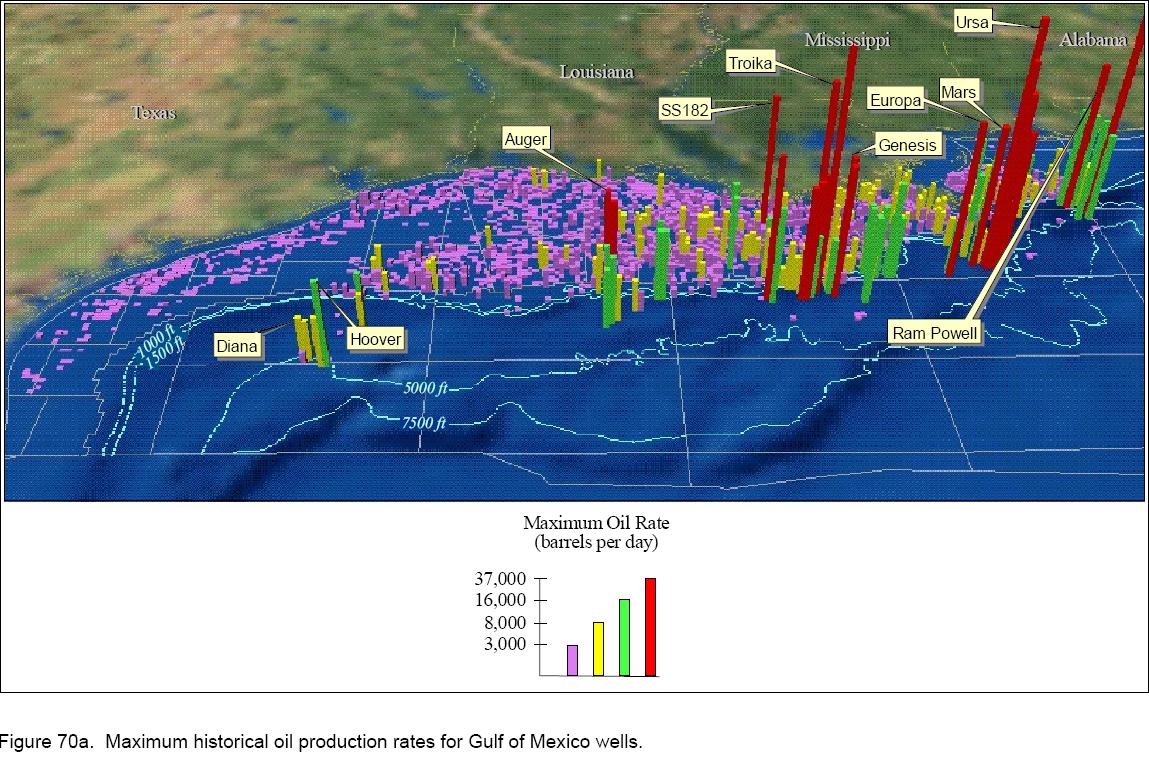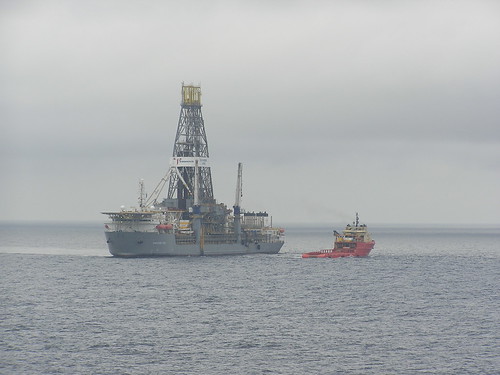Panel:
Alex Woodward - Mod.
Anne Rolfes
Drake Toulouse
Bob Marshall
David Hammer
Len Bahr
Intro. - Alex Woodward.
Overview of blowout - Hammerman.
Schedule here (w/bio's of presenters)
UPDATE 1- Excellent, technically accurate overview given by Hammerman. I've thoroughly enjoyed his
USCG/BOEMRE Board of Inquiry Updates.
UPDATE 2- If we never hear "Top Kill" and "Junk Shot", it'll be a good thing. Unfortunately, that ain't gonna happen.
Ken Feinberg, the "Special Master". He's
special alright.

Anne Rolfes now talking about refinery accident rates. 10 accidents a week. She also starts mixing the oil industry and refinery industry, which I don't generally agree with. I tend to think of Upstream (Exploration and Production) and Downstream (Refining) as separate industries and, interestingly enough, one happens to have a much lower accident rate. According to the (somewhat dated)
Normal Accidents, the Chemical/Refining industry has the lowest fatality rate of any heavy-industrial sector. My opinion. Take it for what you will.
Bummer (BOEMRE) joke is excellent.
Now Hammer is going through the
MMS Sex Parties Scandal. He says that the biggest issue going forward is the lack of qualified personnel at regulators.
UPDATE- Now Hammer and Rolfes are disagreeing about accidents. Hammer seems to be making a distinction between
Process Safety and Personal Safety accidents.
Len Bahr now speaking...
UPDATE
Bob Marshall talking now about the extent of Louisiana's desire to push drilling in order to reap the royalties, employment, etc. "...and we accept this [risk]." 'The oil industry didn't rape the state,' "it was consensual sex."
Distilling it down further...
UPDATE: Drilling down further?
Alright, bonus points to the first panelist to make a reference to
The Oil Drum. OK, that's just my desire I guess...
UPDATE: GCCF: for profit or nonprofit? (BP gets unspent $ back).
Personal note: Cold room. Glad I'm wearing a jacket. Linen is the best for NOLA: loose and breathable for heat, and you get to wear a jacket when you walk into an over-air-conditioned room.
Lots of panelists now ripping of Feinberg (justifiably), but Hammer makes the issue that we do need to root for Feinberg in the end. If Feinberg fails, it's left to the lawyers and courtrooms where MAYBE, SOMEDAY, SOME of those who sue MIGHT get treble damages (and even then to be paid out over installments over time). Rolfes says that BP is trying to turn victims against each other, no acknowledgment of health claims vs. 9/11.
UPDATE:
Len Bahr's blog. "Katrina gave us Bobby Jindal," (knecapped relatively moderate, successful Blanco) {did the Moratorium get Vitter re-elected - Me}, how can we ask for $100 Billion for coastal restoration (which we badly need) after our past actions?
(TP headline) "A Win for the Coast" = 'Waterloo was a win for France' (LA Coastal Restoration $ gets classified as discretionary spending, with 1 Louisiana legislator voting against that modest [$1 million] appropriation.
Discussion about API and its lobbying role. Hammer makes the note that API makes engineering specifications (API RP's) that carry legal authority that are referenced in
Code of Federal Regulations (CFR's). Note that Transocean probably didn't follow API RP's in their maintenance of the failed BOP (there is some vagueness in the API RP that gives TO some wiggle room, but my personal opinion is TO violated API RP's, and hence the CFR's).
Marshall: Pipeline companies in Louisiana gets Eminent Domain power (LA is most restrictive state in nation when it comes to Eminent Domain Laws), but Louisiana can't get that authority for coastal restoration projects. (NOTE: See
issue Campanella talked about earlier with Bayou Bienvenue ). BIG ISSUE!
Hammer relays story from flying offshore with (Doc?) Laborde "You know, we never realized what we were doing back then."
Related (H/T Cade Roux).
Bob Marshall: We're in the driver's seat. Oil reservoirs can't be moved. Thunderhorse has 1 well that produced ~7% of domestic production at one point. The oil industry (my note- as long as prices stay high) aren't going to up and move.
The "Resource Curse".
Rolfes- 'We have such a small budget and the reaction to the little amount of work LA Bucket Brigade does, but then the Oil Industry acts like we're the bane of the state.' [see
recent issue of TELC law ]
? Time:
Can it happen again? Hammer: if BOEMRE doesn't hire qualified inspectors/petroleum engineers/ etc., yes.
? to LA Bucket Brigade on Statistical Compiling of Accident Reports: Rolfes- We just re-compiled industry reports with industry terms (LTI's, etc.). Hammer makes note that there were VIP's were having a party on the Deepwater Horizon to celebrate no LTI's in a long period of time.
LUNCH!!!
NOTE: I tried to note my personal opinions as they popped in my head from the commenters' statements. I hope there aren't too many typos and too scatterbrained and all (for a live product). If you've got a complaint, let me know.





